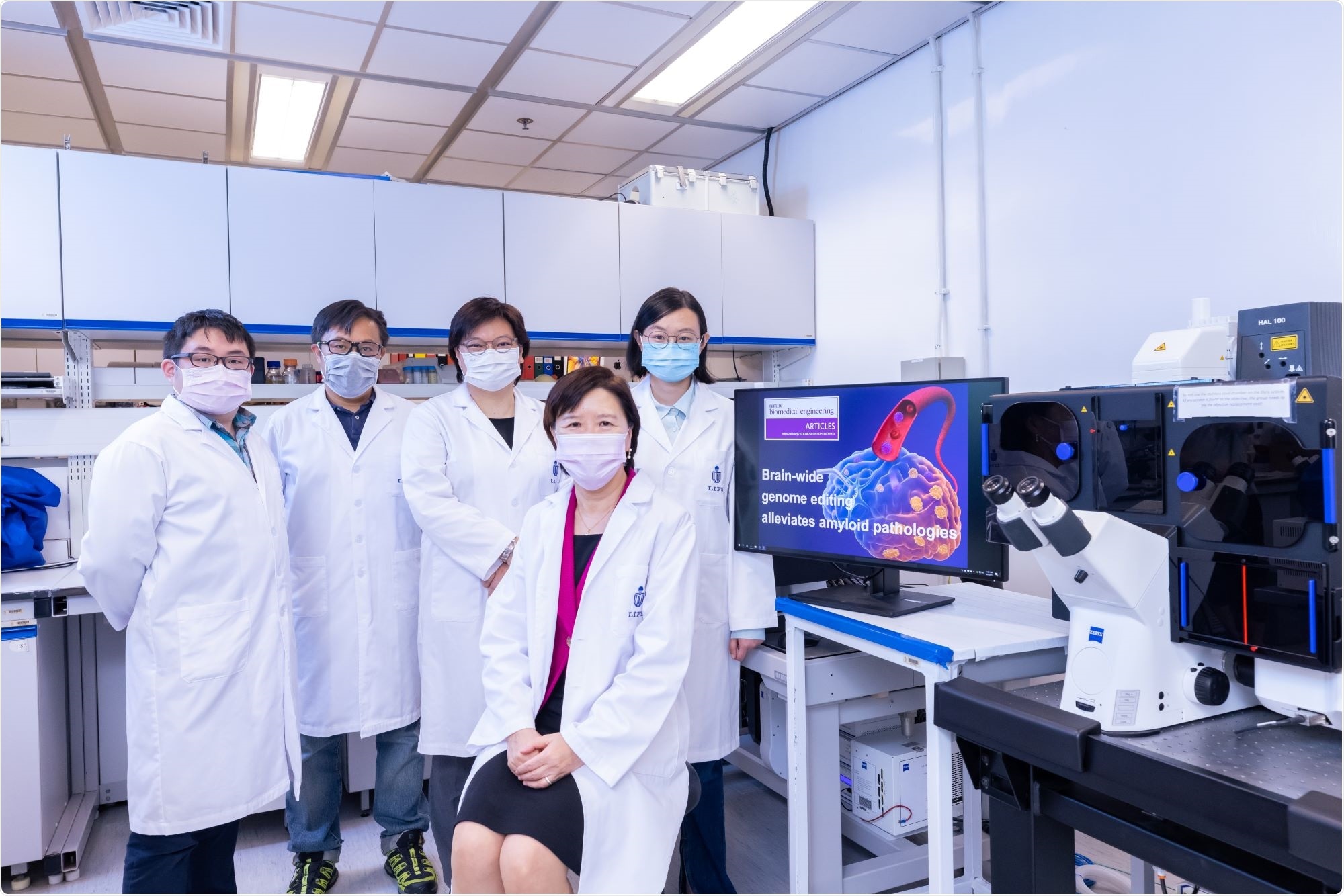Around 500,000 patients in China alone are considered to be living with a hereditary form of Alzheimer’s disease (AD)—familial Alzheimer’s disease (FAD)—which is a congenital form of AD highly linked with family history. Even though FAD has a clear genetic cause and can be identified before the onset of cognitive problems, no efficient treatment exists currently.

HKUST’s Vice-President for Research and Development, Prof. Nancy Ip (second right) and her research team members—including doctoral student and co-first author of this research paper, Ms Stephanie DUAN Yangyang (first right)—used the confocal imaging system (pictured) to demonstrate how disruption of a familial Alzheimer’s disease mutation by genome editing strategy reduces disease pathology. Image Credit: Hong Kong University of Science and Technology.
There is a huge possibility of using genome-editing technology as a therapeutic strategy for diseases caused by inherited mutations, like FAD. It is particularly beneficial for improving disease-causing genetic mutations before the onset of symptoms, for which it is regarded as a “once-and-for-all” treatment as the effects can last a lifetime.
However, numerous obstructions prevented its clinical development and application—particularly the lack of an efficient, effective, and non-invasive method to deliver genome-editing agents into the brain. Moreover, present genome-editing technologies are unable to create beneficial outcomes throughout the whole brain.
A group of researchers headed by Prof. Nancy Ip, Vice-President for Research and Development at Hong Kong University of Science and Technology (HKUST) created a novel genome-editing system that not only crosses the blood-brain barrier but also delivers an optimized genome-editing tool to the entire brain.
Employing a newly engineered delivery vehicle for genome editing, this approach achieved effective brain-wide genome editing by a single non-invasive intravenous administration. This efficiently disrupts FAD-inflicted mutations in AD mouse models and improves AD pathologies throughout the entire brain, leading the way to novel therapeutic development for the disease.
At the same time, the scientists also identified in the mouse models that the level of amyloid, a protein considered to drive neurodegeneration in AD, remained low for 6 months post-treatment (around one-third of their normal lifespan), depicting that this single-shot genome-editing strategy has persistent effects. More significantly, no side effects were identified till now in the mice.
As the first demonstration of efficient brain-wide genome editing to alleviate Alzheimer’s disease pathology throughout the whole brain, this is really an exciting development. Our work is an important milestone for the use of genome editing in treating hereditary brain diseases, and contributes to the development of precision medicine for inherited forms of neurodegenerative diseases.”
Nancy Y. Ip, Director, State Key Laboratory of Molecular Neuroscience, Hong Kong University of Science and Technology
Professor Ip is also the Morningside Professor of Life Science.
Genome editing of the familial mutation in AD mice improves their memory performance. Video Credit: Hong Kong University of Science and Technology.
Source:
Journal reference:
Duan, Y., et al. (2021) Brain-wide Cas9-mediated cleavage of a gene causing familial Alzheimer’s disease alleviates amyloid-related pathologies in mice. Nature Biomedical Engineering. doi.org/10.1038/s41551-021-00759-0.